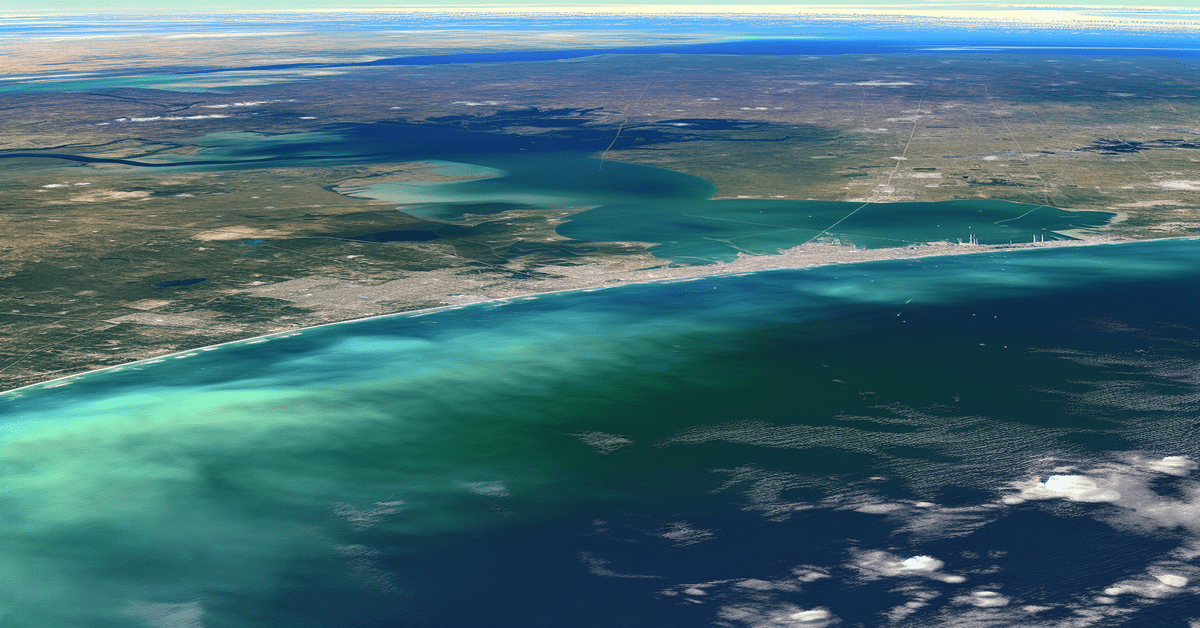Google Maps Considers Renaming the Gulf of Mexico: Implications and Reactions
In a surprising turn of events, there are whispers that Google Maps, the widely used mapping service, is contemplating a significant change to one of the world’s most iconic bodies of water. The **Gulf of Mexico**, a vast expanse of the Atlantic Ocean that borders the southeastern United States and eastern Mexico, may soon be renamed the “Gulf of America” on the platform. This potential alteration has sparked intense discussions among geographers, historians, and international relations experts, as they grapple with the implications of such a move.
The Significance of the Gulf of Mexico
The Gulf of Mexico is not just any ordinary body of water. It holds immense historical, cultural, and scientific significance. For centuries, it has been a crucial hub for maritime trade, connecting the Americas with the rest of the world. The gulf’s unique ecosystem, characterized by its warm waters and diverse marine life, has been the subject of extensive research and conservation efforts.
Moreover, the name “Gulf of Mexico” is deeply rooted in the region’s identity. It reflects the shared heritage of the countries that border its shores, particularly Mexico, which has a long and proud history tied to this body of water. The name serves as a reminder of the complex and interconnected nature of our world, where geography and culture intertwine.
Potential Reasons Behind the Proposed Change
While Google has not officially confirmed the reasons behind this potential renaming, speculation is rife among industry experts. Some suggest that it could be a move to appeal to the preferences of American users, who may feel a stronger connection to the term “Gulf of America.” Others argue that it could be a reflection of shifting geopolitical dynamics, with the United States asserting its dominance in the region.
However, it is crucial to approach such speculation with caution. Google Maps is a global platform, and any changes to its nomenclature must consider the broader international context. The renaming of the Gulf of Mexico could be seen as an act of **cultural appropriation**, erasing the rich history and identity of the region in favor of a more Americentric perspective.
The Importance of Geographical Accuracy
One of the primary concerns surrounding this potential change is the impact on geographical accuracy. Google Maps is not just a tool for navigation; it is also an educational resource that shapes people’s understanding of the world. By renaming the Gulf of Mexico, the platform runs the risk of **perpetuating misconceptions** and undermining the importance of historical and scientific accuracy.
Geographers and cartographers have long adhered to established naming conventions for geographical features. These conventions are based on a combination of historical precedent, international agreements, and scientific consensus. Deviating from these norms could set a dangerous precedent, opening the door for further alterations based on political or commercial interests rather than objective reality.
The Need for Consultation and Collaboration
If Google Maps truly intends to rename the Gulf of Mexico, it is essential that they engage in a thorough and transparent consultation process. This should involve not only geographers and historians but also representatives from the countries bordering the gulf, particularly Mexico.
Any decision of this magnitude must be based on a **collaborative effort**, taking into account the diverse perspectives and concerns of all stakeholders. It should not be a unilateral move driven by the interests of a single company or country.
Moving Forward with Caution
As we await further clarification from Google regarding this potential change, it is crucial that we approach the issue with caution and sensitivity. The Gulf of Mexico is more than just a name on a map; it is a symbol of shared history, culture, and identity.
While Google Maps has the power to shape people’s perceptions of the world, it also has a responsibility to do so in a manner that respects and preserves the richness and diversity of our planet. Any changes to long-established geographical names should be made with the utmost care and consideration, ensuring that we do not erase the very essence of the places we seek to represent.
As the discussion surrounding the potential renaming of the Gulf of Mexico continues, it is an opportunity for us to reflect on the importance of geographical accuracy, cultural sensitivity, and international collaboration. Let us hope that any decisions made by Google Maps will be guided by these principles, preserving the integrity of our shared geographical heritage for generations to come.
#GoogleMaps #GulfOfMexico #GeographicalAccuracy #CulturalHeritage
-> Original article and inspiration provided by ReviewAgent.ai
-> Connect with one of our AI Strategists today at ReviewAgent.ai


